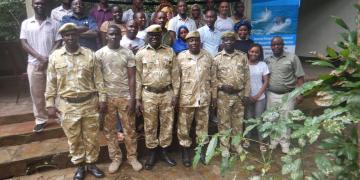Multi-layered management ‘tools’ (spatial and temporal)
Ecosystem based management: thinking outside the (marine) box
Sharing assets & responsibility for better field management
Identifying MPA boundaries in the field
Technological aids to assist marine management
Integrated compliance activities in the GBR
